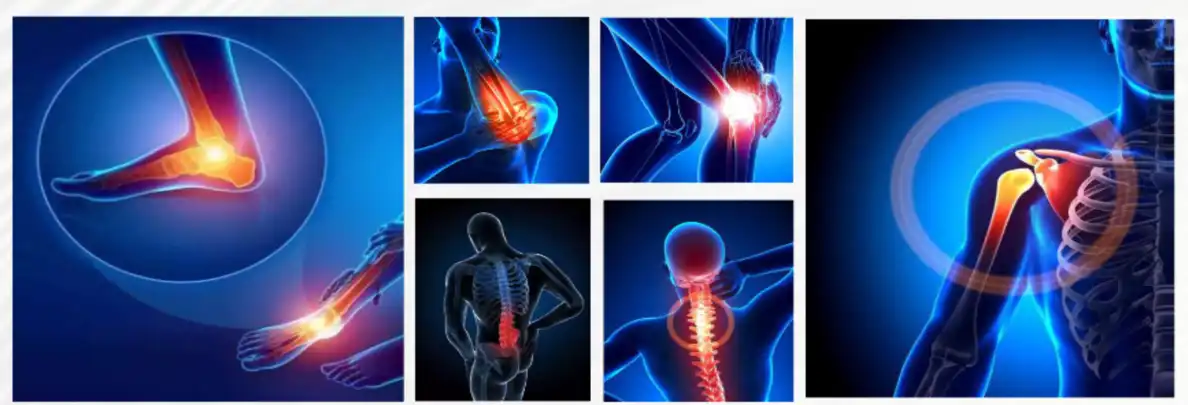In the realm of modern medical treatments, shockwave therapy has emerged as a promising option for various conditions. When it comes to shockwave therapy using specialized Shockwave therapy erectile dysfunction machine, identifying the right candidates is crucial. Let's explore in detail who stands to benefit the most from this innovative treatment approach.

Understanding Shockwave Therapy for Erectile Dysfunction
Shockwave therapy for erectile dysfunction operates on a fascinating principle. The Shockwave therapy erectile dysfunction machine that target the penile tissues. These waves stimulate angiogenesis, which is the formation of new blood vessels. By enhancing blood flow to the penis, it aims to improve erectile function over time. This non-invasive approach has gained popularity as an alternative to more invasive surgical procedures or long-term medication use.
Ideal Candidates
1. Men with Mild to Moderate Erectile Dysfunction
Those who have been diagnosed with mild to moderate erectile dysfunction (ED) are often prime candidates. This group includes men who experience occasional difficulties achieving or maintaining an erection, but whose condition is not severe. For example, a man in his 40s or 50s who notices a decline in sexual performance compared to his younger years, perhaps due to factors like stress, lifestyle changes, or mild vascular issues, could potentially benefit. The shockwave therapy can help jumpstart the natural healing processes in the penile tissues, gradually improving blood flow and restoring function. In many cases, these men have not yet reached the point where they require more drastic interventions like surgery or heavy reliance on medications.
2. Patients Unresponsive or Intolerant to Medications
Some men find that traditional ED medications, such as Viagra or Cialis, either don't work effectively for them or cause unpleasant side effects. These individuals are excellent candidates for shockwave therapy. Maybe they experience headaches, flushing, or nasal congestion when taking pills, or simply don't see the desired improvement in their erectile function. Shockwave therapy offers a drug-free alternative that can address the root cause of the problem by enhancing the body's own ability to improve blood supply to the penis. It provides hope for those who have been disappointed with the pharmacological options available to them.
3. Men Looking for a Non-Invasive Solution
In today's world, where many patients are increasingly averse to invasive procedures, men seeking a non-invasive Shockwave therapy erectile dysfunction machine. Surgery, such as penile implants, can be intimidating due to the associated risks, recovery time, and potential complications. Shockwave therapy, on the other hand, involves no incisions, minimal discomfort during treatment, and relatively quick recovery. It allows men to explore a treatment option that doesn't disrupt their daily lives significantly. For instance, a busy professional who doesn't have the time or inclination for a long surgical recovery period can opt for shockwave therapy and continue with his regular activities with only minor adjustments.
4. Those with Underlying Vascular Issues
Many cases of erectile dysfunction are related to poor blood circulation, often caused by underlying vascular problems. Men with conditions like atherosclerosis (hardening of the arteries), hypertension (high blood pressure), or diabetes, which can all impact blood vessel health, may find shockwave therapy beneficial. The shockwaves can help break down plaque deposits in the penile arteries, encourage the growth of new, healthy blood vessels, and improve overall vascular function. This, in turn, can have a significant impact on erectile function, providing a more comprehensive solution than just treating the symptoms.
Contraindications and Cautions
1. Severe Cardiovascular Conditions
Men with severe heart disease, recent heart attacks, or uncontrolled high blood pressure are generally not suitable candidates. The stress of the shockwave treatment on the cardiovascular system, although minimal compared to surgery, could potentially exacerbate their existing conditions. For example, a patient who has had a major heart attack within the past six months and is still in a fragile state of recovery should avoid shockwave therapy until their cardiologist gives the green light. The safety of the patient must always be the top priority, and in such cases, other treatment options need to be explored.
2. Bleeding Disorders
Individuals with bleeding disorders, such as hemophilia or those taking blood thinners, pose a risk. The shockwave treatment can cause minor bleeding at the treatment site, and in patients with compromised clotting mechanisms, this could lead to excessive bleeding or hematoma formation. A patient with hemophilia, for example, would need to have their condition carefully managed and coordinated with their hematologist before considering shockwave therapy.
3. Untreated Psychogenic ED
While shockwave therapy can address physical causes of erectile dysfunction, it may not be as effective for those with purely psychogenic issues. If a man's erectile problems are primarily due to psychological factors like stress, anxiety, or relationship issues, and these have not been addressed through counseling or psychotherapy, shockwave therapy alone may not provide the desired results. In such cases, a combined approach of psychological support and, if appropriate, shockwave therapy might be more beneficial.

Shaanxi Miaokang Medical Technology Co., Ltd had R&d and produce Shockwave therapy erectile dysfunction machine
is a comprehensive integrator engaged in medical instrument research and development, sales, medical technology research and promotion, and investment in medical institutions. The main research and development of medical ozone therapy equipment, extracorporeal shock wave therapy equipment and other products.
If you had any questions,feel free to contact us:Cathy@miaokang.ltd
In conclusion, shockwave therapy using a shockwave therapy erectile dysfunction machine can offer a ray of hope for many men struggling with erectile dysfunction. By understanding who the good candidates are and being aware of the contraindications, patients and healthcare providers can make informed decisions. It's all about tailoring the treatment to the individual's specific needs, aiming to improve sexual health and overall quality of life. As research in this field continues to progress, we can expect even more precise targeting of candidates and enhanced treatment outcomes.
[Reminder] This information is for internal academic exchange, for the reference of medical professionals only, and not for advertising purposes. It does not provide any express or implied warranties and cannot be used as a diagnostic or medical basis. Please read the product manual carefully or purchase and use it under the guidance of medical personnel.






